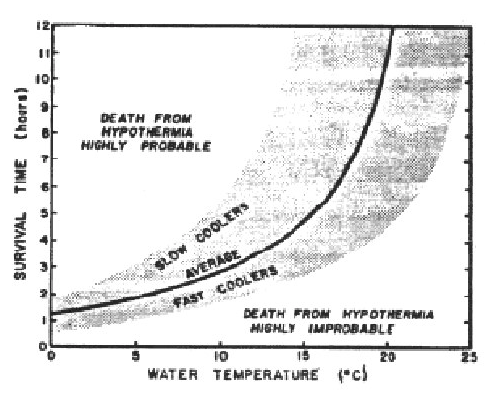HYPOTHERMIA
Dr Mind
Dr Body
Dr Eye
What is hypothermia?
Hypothermia is defined as a body core temperature less than 35 C.
Decreased consciousness occurs when the core temperature falls to approximately 32 to 30 C.
Normal body temperature is 37.2 C
Who is at risk for developing hypothermia?
WE ALL ARE!!! BUT particularly…. people under 16 and over 65
Alcohol use: alcohol makes you feel warm inside, but causes blood vessels to dilate, causing increased heat loss, and can upset thermoregulation
Medical illnesses: that affect sensation in extremities eg feet and medications
Dehydration and jetlag
Swimming in cold water
In cold water, heat is conducted away from the body and transferred to the water.
Heat is lost very quickly, 25 to 30 times faster in water than air.
Swimming ie activity further increases heat loss (increase by 35-50%)
How long can a person survive in cold water?
Water temp / Exhaustion / Survival
4C-10C / 30 to 60 min / 1 to 3 hrs
10C-15C / 1 to 2 hrs / 1 to 6 hrs
15C-21C / 2 to 7 hrs / 2 to 40hrs
Hypothermia symptoms
shivering
clumsiness or lack of co-ordination
slurred speech or mumbling
confusion or difficulty thinking
poor decision making lack of concern about one’s condition
weak pulse '
shallow breathing
Swim Failure:
Swim failure occurs when the arm muscles are cooled to the point they cease working properly
Children and thin adults are vulnerable
Another good reason never to swim alone!
Symptoms:
Hypothermia sneaks up on you, so you probably aren't the best judge of whether or not you are hypothermic.
Self awareness is your greatest asset.
Resisting help and acting irrational or confused are common indicators of hypothermia.
As your core temperature drops dangerously low, you become semiconscious, then unconscious.
Low core body temperatures may cause cardiac and respiratory failure
Prevention:
Have a hot drink before leaving home
When leaving home Pack an old jacket/sweater and shoes/sandals and WEAR them.
Heat loss occurs in cold air and it is important to be warm before entering the water.
Consider if you should swim today, (the café is always a safe and social option)
Consider how long you should swim today
Consider who you will swim with (always swim with others ).
Ask yourself: do I feel well?
Ask yourself: did I have a big night last night?
Ask yourself: how did I feel after my last swim? Is it colder? Is it rougher?
Ask yourself: how many min. can I swim for in winter? Swim within yourself.
Wear a jacket/sweater and shoes on the pier as cold air and wind cause significant heat loss
If you don’t feel right GET OUT
When trouble strikes
If you suspect you are developing swim failure or hypothermia:
Tell someone
Try to stand up if the water is shallow
Use your legs as they don’t cool, as quickly as your arms and kick to land/platform /board
Signs:
Severely hypothermic people have icy skin.
Extreme lethargy merges with unconsciousness and they might appear dead.
Since each individual reacts differently, the severity of hypothermia is best measured by taking a core temperature reading using a rectal thermometer
Treating hypothermia
Be gentle and limit movements to only those which are necessary
Get the person indoors to the steam room ASAP and dry them gently with a towel
Lie the person down in the steam room
Monitor breathing, pulse and brain eg Ask the person questions eg where are you? what day is it?
Share body heat to the chest, warm the core, place warm arms across the chest
Provide a warm drink
DO NOT massage or rub the person
DO NOT apply direct heat eg a hot shower
Heat applied to the arms and legs forces cold blood back to the heart and lowers the temperature further.
DO NOT leave the person alone if No pulse or Not breathing then CPR (Try for 2 min to find pulse , breathing)
CALL AN AMBULANCE
Don't assume the person is dead, they are only dead when they are warm and dead.
Good luck to all !!!!! Safe winter swimming. “Be alert but not alarmed”

